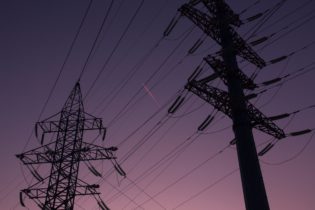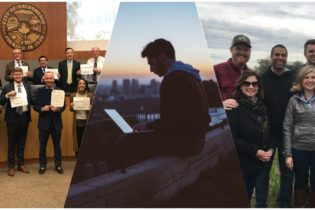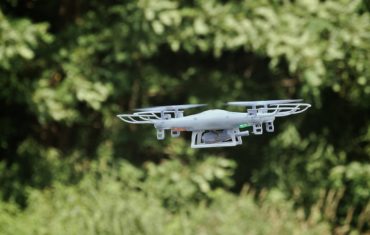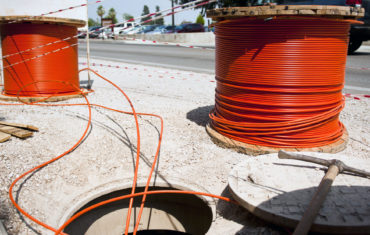Continuing Our Work Toward “Broadband for All”

As our region grapples with the COVID-19 pandemic and its effects on daily life and the economy — now compounded by the ongoing wildfires — the digital divide continues to grow. The ability to do distance learning, telecommuting, and telehealth is critical, and it is becoming increasingly clear that there can be no real equity without ubiquitous broadband. State, regional, and local solutions must be pursued concurrently, in an “all hands on deck,” multi-pronged approach.
State-level updates
On August 14, Governor Gavin Newsom issued Executive Order N-73-20, to address the broadband access, adoption, and training needs of Californians — all made more urgent by the COVID-19 pandemic. The following are some of the Order’s major provisions:
- The order directs the California Broadband Council (CBC) to create a new State Broadband Action Plan by December 31, 2020, incorporating a goal of 100 Mbps download speed for infrastructure investment. The Plan will include a roadmap to accelerate deployment and adoption of broadband by state agencies; support such deployment and adoption by local governments; and provide publicly accessible information on all federal and state funding opportunities.
- The Public Utilities Commission (CPUC) is directed to lead broadband data aggregation and mapping efforts, and to provide information on public and private broadband network infrastructure and the cost of deploying network components. This effort will be supported by the California State Transportation Agency and other relevant state agencies; local and tribal governments; and regional consortia, like the Connected Capital Area Broadband Consortium (CCABC), managed by Valley Vision.
- The California Governor’s Office of Business and Economic Development (GO-Biz) is directed to identify funding opportunities to support broadband, equipment, and digital literacy, in collaboration with all cabinet-level agencies, independent departments, and independent constitutional officers.
In addition to these major provisions, the Order directs other state agencies to address the need for deployment and adoption by activating policies and leveraging resources — with particular emphasis on connecting residents with affordable internet service offerings, and ensuring that students have the connectivity and devices necessary for distance learning.
On August 26, the CBC held a special session focused on the planning and implementation of the Governor’s Executive Order. CBC members and a wide range of broadband stakeholders attended the virtual meeting and provided input. The session generated the following proposed approach:
- Developing an outline;
- Articulating a vision;
- Compiling a fact base;
- Developing a timing and cost model;
- Mapping out funding and actions for 2021;
- Conducting research on adoption gaps; and
- Facilitating stakeholder sessions with local governments and the private sector.
The regional broadband consortia, including the CCABC, will continue to actively support these efforts.
Valley Vision has been working with the office of Assemblymember Cecilia Aguiar-Curry (Winters), the California Emerging Technology Fund, and a statewide network of more than 40 partners to support AB 570 – the Internet for All Act of 2020. AB 570 prioritizes the deployment of broadband infrastructure in the state’s most vulnerable, unserved, and underserved rural and urban communities. It extends the collection of funds for the California Advanced Services Fund (CASF), to provide grants to bridge the Digital Divide. While the next stage of the legislative process is yet to be determined, the bill has helped make the case to the Legislature and Governor’s Office for increasing funding, to meet the needs that California is facing now and into the future.
County-level efforts
As manager of the CCABC, Valley Vision hosted a webinar on August 11 on “Community Broadband in Yolo County,” in partnership with the Woodland Technology Alliance. The webinar was a conversation about the current state of the county’s technical infrastructure, as well as solutions to address the community’s broadband gaps. The webinar was a starting point for further exploring innovative strategies, and panelists represented several sectors of the region, including the local government, school district, and state government. A full recording can be found here, and a summary of the discussion can be found here. Valley Vision continues to work with Yolo and other counties to bring these issues to the forefront, and convene partners, stakeholders, and community members to build consensus and take next steps.
Ground truth testing with CalSPEED
Valley Vision is working with local partners and communities from our region to demonstrate the need for better internet service in the region. Community members are encouraged to download the CPUC’s CalSPEED app, which securely tests residential and mobile broadband speeds. Results from the speed test crowdsource a statewide coverage map to inform infrastructure investments. A flyer containing information on the CalSPEED test can be found here.
Additionally, the CPUC, in partnership with CSU, Chico and CSU, Monterey Bay are looking for volunteers to take part in the CalSPEED Home Broadband Study — a statewide effort to collect quality measurements utilizing the new CalSPEED Home Measurement Device.
Please share this information with your partners, stakeholders, and networks.
Low-cost internet service programs
In response to the increased need for distance learning, telecommuting, and telehealth capacity, several Internet Service Providers have begun offering low-cost internet service to families for qualifying low-income households. More information can be found here and here. Please share this information with your partners, stakeholders, and networks, to make sure that all community members are made aware of this option.
This blog focuses on just some of the updates at the state, county, and local level. To continue staying up to date with all of the region’s broadband efforts, subscribe to Valley Vision’s e-Connect email newsletter!
Trish Kelly is Valley Vision’s Managing Director, leading its food, agriculture, workforce, and broadband initiatives.
David Espinoza is a Valley Vision Project Leader managing broadband projects and other initiatives in the Innovation & Infrastructure impact area.
Isa Avanceña is a Valley Vision Project Associate supporting the Board of Directors, and the Innovation & Infrastructure and Leadership and Civic Engagement Impact areas.





